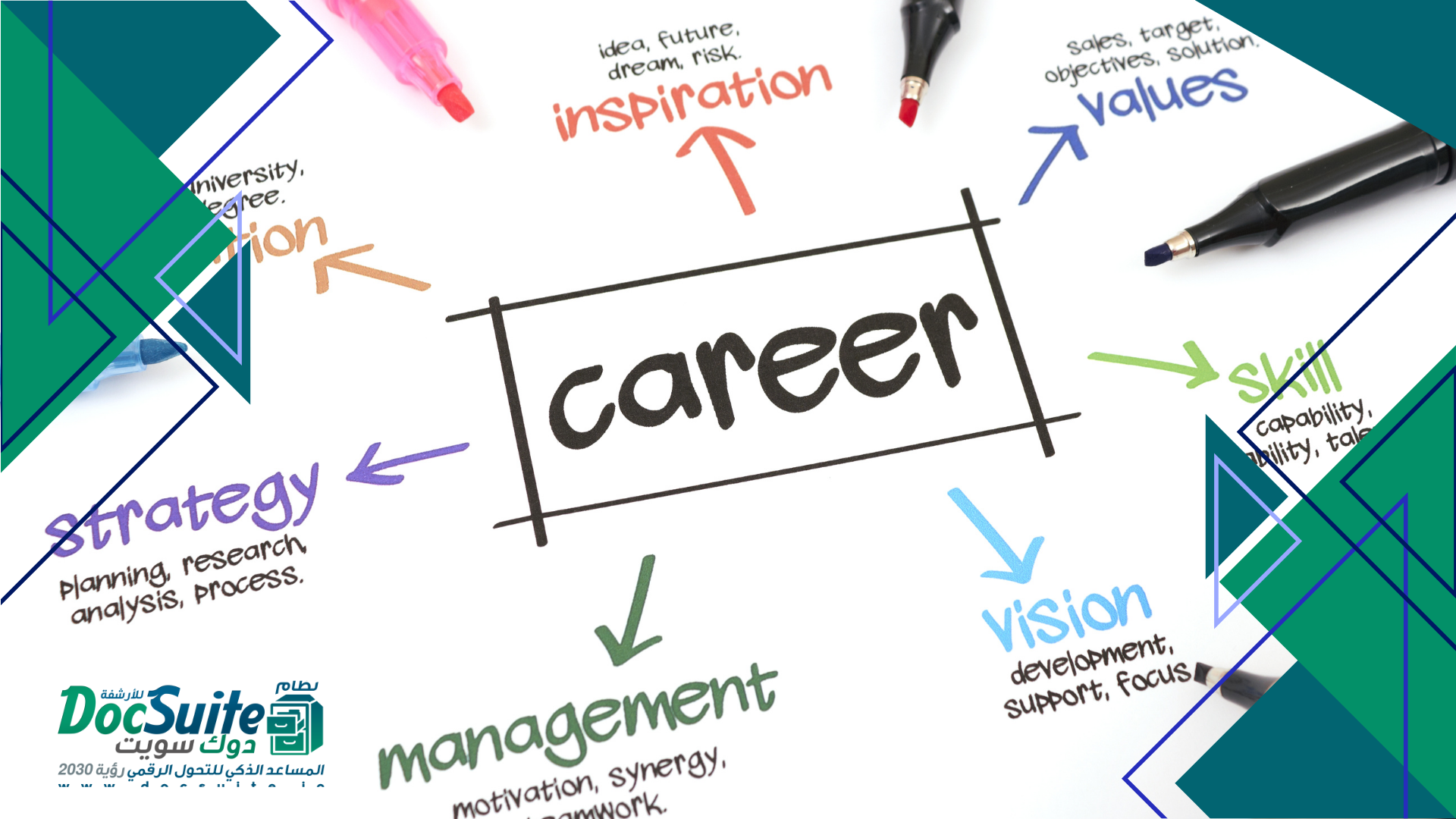The mid-career phase is considered one of the most exciting and challenging periods in a person's professional life. It's a time when individuals gain more experience and confidence in their field of work, while also starting to seriously consider their professional future and personal aspirations. In this article, we will take a look at the importance of the mid-career phase, the challenges individuals may face during this period, and strategies that can be followed for success and professional development.
Importance of the Mid-Career Phase
The mid-career phase is a turning point in a person's professional life, where they have acquired more distinct skills and experience to better understand work systems and their challenges. It's a period in which individuals can assess their career path so far and determine whether they want to continue on the same path or prefer to explore new areas.
Challenges in the Mid-Career Phase
Frustration and Boredom:
After years of working in the same field, some individuals may feel frustrated and bored. This feeling can be attributed to the daily routine, which can become monotonous, along with a lack of new challenges that can make a person feel professionally unfulfilled. Work becomes a dull routine devoid of the exciting challenges that were once a significant part of the drive for success.
Work Pressure and Responsibilities:
As a person advances in their mid-career phase, responsibilities and work pressures may increase. These responsibilities could come in the form of supervising a team, making important decisions, or bearing the responsibility for the success of large projects. Dealing effectively with these increased responsibilities requires good time management, the ability to handle pressures, and the ability to make decisions confidently and effectively.
Balancing Work and Personal Life:
During the mid-career phase, individuals may face many challenges, including feelings of frustration and boredom due to routine and a lack of new challenges, as well as increased responsibilities and work pressures. Some may find it difficult to find a balance between work and personal life, affecting their mental and physical health.
Feeling of Emptiness:
The mid-career phase may bring a feeling of emptiness, where a person finds themselves less enthusiastic or committed to work as they were before. This feeling may result from several factors, such as a monotonous routine, job dissatisfaction, or even a sense of not belonging to the team or organization. Overcoming these challenges requires renewing passion and interest in work, perhaps by changing the work itself or modifying the current situation by seeking new and exciting challenges within the current job.
Fear of Change:
Change in the mid-career phase can be a significant step that may raise many fears, such as fear of failure, inability to adapt to a new work environment, or even fear of losing professional stability. To overcome these challenges, individuals must develop adaptability and resilience, think positively, and accept failure as part of the learning and professional development process.
Financial Challenges:
When taking new steps in the mid-career phase, financial challenges may arise, such as ensuring financial stability during the transition period, especially if this step requires a significant financial investment or if the transitional period is long. To overcome these challenges, individuals should have a good financial plan, carefully consider the available options, such as pre-saving, considering additional income, or even consulting a financial expert for advice and guidance.

Strategies to Overcome Challenges and Succeed in the Mid-Career Phase
In the mid-career phase, we may find ourselves facing challenges that require creativity and strategic thinking to overcome. These challenges may include feelings of frustration from the work routine, increased responsibilities, and difficulty achieving work-life balance. To succeed in this stage, we can follow strategies that help us achieve our goals and overcome the challenges we face.
Skill Development:
Developing skills is crucial in the mid-career phase, as it requires individuals to stay abreast of the latest developments in their field of work. Continuous learning and acquiring new skills are necessary to improve performance and achieve success in the mid-career phase. By developing skills, individuals can improve their chances of obtaining new job opportunities and delivering outstanding performance in their current position.
Exploring New Opportunities:
Exploring new opportunities within or outside the field of work is crucial for career development. By exploring new opportunities, you can expand your professional horizons and increase your motivation and inspiration. Look for opportunities that match your skills and interests, and be prepared to challenge yourself and gain new experiences. Don't forget to develop a career plan that defines your goals and how to achieve them, considering developing the skills and experiences necessary to achieve these goals.
Maintaining Balance:
Taking care of the balance between work and personal life is essential for mental and physical health and increasing productivity. Individuals should organize their time well, manage pressures properly, and rely on a positive approach to life. Achieving balance can be done by setting priorities, enjoying time with family and friends, and engaging in hobbies and activities that promote mental and physical well-being.
Communication and Relationship Building:
Good communication and building strong relationships in the workplace are essential elements for professional success. Through effective communication with colleagues and building good relationships, individuals can enhance their professional opportunities, exchange experiences and knowledge with others. Good communication helps build bridges of understanding and collaboration, which can lead to achieving common goals and success in the workplace.
Setting Career Goals:
Setting career goals and developing a solid action plan to achieve them are two essential steps for success in the professional path. Individuals should clearly define their goals and develop an action plan that outlines the necessary steps to achieve these goals. Through these steps, individuals can motivate themselves and increase their chances of success, as well as help them achieve continuous progress in their professional path.
Self-Assessment:
Before making any professional decisions, it is important to assess your skills, interests, and personal values. This can help you determine the direction you want to take in your career and adjust your choices accordingly. Assessing your skills can include identifying your technical, linguistic, administrative, and personal skills, while assessing your interests can help you identify areas of work that interest you and pose an exciting challenge for you. As for assessing your personal values, it can help you identify the principles and values that you want to apply in your work environment, which can guide your professional decisions and determine your future career direction.
Networking:
Building a strong network of relationships in the workplace is vital for achieving professional success. You can do this through continuous communication with colleagues and professionals in the field, whether by attending professional events, using professional social media, or even by engaging in professional communities online. Be ready to share your knowledge and experiences with others, as this helps build your professional reputation and makes you a valuable resource for others, which may open up many professional opportunities for you in the future.
an have a significant impact on your professional development and success in your field.
Mid-career is an important and critical period in one's professional life, and by following the right strategies and dealing wisely with challenges, individuals can achieve success and future professional development.
DocSuite System: Your Support in the Mid-Career Journey
Using the DocSuite system, individuals can improve their time management and task organization, making it easier to focus on priorities and increase productivity. The system can also help them track their professional progress and achieve their goals more quickly and effectively.
The DocSuite human resource management system can be a valuable tool for individuals in their mid-career, as they face many challenges and need effective management of their human resources. Here's how the DocSuite system can help:
Performance Management:
The DocSuite system can help individuals improve their performance by tracking specific goals and conducting regular performance evaluations. The system can also provide immediate feedback on performance and provide detailed analysis to help understand the extent to which goals are being achieved and identify areas for improvement. These features help individuals identify strengths and weaknesses in their performance, motivating them to continuously improve.
Attendance and Leave Management:
The attendance and leave management feature in the DocSuite system helps individuals effectively manage their attendance and leave. Through this feature, individuals can easily record their attendance and leave, submit leave requests, and track their status. This feature allows them to track the number of working hours and leave used, helping them achieve a balance between work and personal life. Additionally, individuals can receive reminders about upcoming leaves and important dates, making their time management more effective and increasing their productivity.
Career Development:
The DocSuite system provides many tools and resources that can help individuals identify their future career path and achieve their goals. For example, the system can help individuals analyze their skills and interests, compare them with available job opportunities, and then guide them towards suitable options. The system can also provide advice on training courses and professional certifications that can enhance their career path. Additionally, the DocSuite system can provide information about available job opportunities within the organization, guide them on how to apply for them, and develop future plans.
Enhancing Communication:
The DocSuite system can improve communication between individuals and their management, as well as between individuals and their colleagues, helping to build positive work relationships. Through the system, individuals can communicate with their management more effectively, whether through leave requests, work inquiries, or suggestions and complaints. The system can also provide a platform for social communication within the organization, making it easier for individuals to communicate with their colleagues and exchange knowledge and experiences. Additionally, the DocSuite system can provide means to honor and appreciate individual efforts, enhancing team spirit and contributing to building positive relationships among colleagues.
In conclusion, mid-career marks a critical period in everyone's professional life. It is a period that brings new challenges and exciting opportunities for personal and professional development. By adopting effective strategies such as goal setting, skill development, and building professional relationships, individuals can overcome challenges and achieve success in their career paths.
